Oct 28, 2025 10:47 AM
In Memoriam: Jack DeJohnette, 1942–2025
Jack DeJohnette, a bold and resourceful drummer and NEA Jazz Master who forged a unique vocabulary on the kit over his…
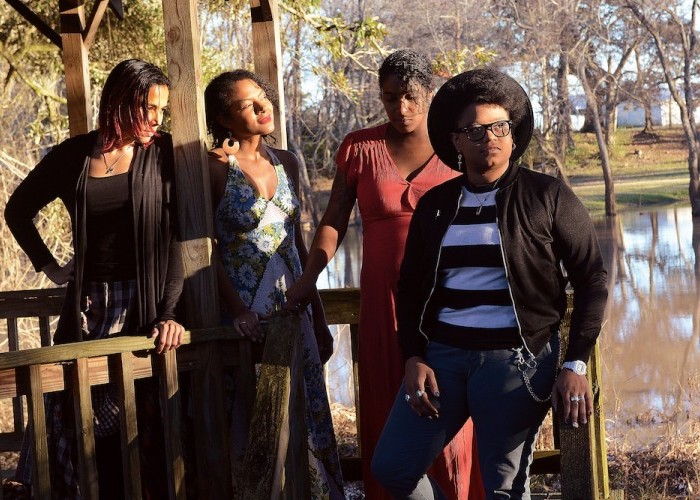
Songs Of Our Native Daughters—a collaborative set from Rhiannon Giddens (left), Allison Russell, Leyla McCalla and Amythyst Kiah—pushes back against expectations of American folk music, setting the record straight with a powerful quartet of black women who play banjos, fiddles and acoustic guitars.
(Photo: Terri Fensel)When she sings certain songs, Rhiannon Giddens feels herself become an oracle. The medium her messengers speak through is music; the messengers, she says, are her ancestors long passed from the earthly plane. They are daughters of Africa—brought to this country in chains, owned by white men who enslaved them, mutilated them and put babies into their bellies only to sell them once born.
These black women endured the inhumane horror of the American slavery system. Giddens believes they speak through her voice because their own voices have never truly been heard.
“I’ve been writing songs based on slave narratives for six or seven years,” said Giddens in the first frigid days of this year. After reading the personal stories of enslaved black women, Giddens began composing sketches of songs that reflected the unimaginable pain of their experiences.
“There was a voice that’s trying to get through; there were spirits speaking as the songs came out. [This music] is heavy; it takes a toll. You can’t sing these songs any old time,” Giddens explained.
Many such songs are featured on the new album Songs Of Our Native Daughters (Smithsonian Folkways), a collaborative project helmed by Giddens and co-created with artists Amythyst Kiah, Leyla McCalla and Allison Russell. The album was produced by Giddens and Dirk Powell, a banjoist and fiddler who is revered in Americana circles.
The harrowing song “Mama’s Crying Long” is, according to Giddens, based on “a narrative that I read years ago, and the song just came through me. I don’t like to say I wrote it, because really, it was given to me.”
The lyrics depict a horrific scene: “All the men have come/ And they brought the rope/ They came here for Mama/ And they brought the rope.”
In call-and-response style, Giddens sings the melody, her voice strong and clear, vibrato notes trailing off each phrase. McCalla, Kiah and Russell answer her, singing as one body in low, throaty voices. The only accompaniment is Giddens’ hand-clapping and a recurring series of drum beats by percussionist Jamie Dick. The tune’s tempo is moderately fast; save for its harrowing lyrics, it might tempt listeners to dance.
“Mama’s in a tree/ And she can’t come down/ Mama’s in a tree/ And she won’t come down/ Mama’s flyin’ free/ And she can’t come down.”
The new album is intended as an examination of and testament to the resilient strength of black Americans, especially black women, Giddens said: “History shows us that black people have rarely had agency in this country. From the beginning, when Africans were first brought here, there was little-to-no opportunity for them as individuals to shape their lives and choose their destinies.
“For black women, that went doubly so, because you also have an entire history of sexual violence against them, their bodies literally used as breeding factories. But through all of that, there is an incredible legacy of black creativity and brilliance; they always found a way for their souls to shine through.”
Assembling a group of black women, all of whom make art in musical spaces often thought of as predominantly “white”—such as folk, old-time and Americana—was a strategic decision Giddens made, one designed to correct entrenched narratives about roots music and its origins.
“When I co-founded the [Carolina] Chocolate Drops around 13 years ago, things were much less ‘progressive,’” Giddens said. The Grammy-winning string-band trio consisted of Giddens, co-founder and banjoist Dom Flemons and fiddler Justin Robinson. Because all the musicians are African American, the band bucked expectations of what American folk music sounded—and looked—like. (The band, which experienced some personnel changes over years, would go on to win the category Beyond Artist or Group in the 2011 DownBeat Critics Poll.)
“Much of what is deemed folk music has its roots in Africa and African American tradition. I am obsessed with banjo as a tool of reclamation for African American artists,” she said, an interest that is reflected on her 2017 solo album, Freedom Highway (Nonesuch).
“The banjo is from West Africa,” Giddens noted, “and it was black people who first played banjo music in America, which is a theme we explored with Freedom Highway.”
The project featured original compositions by Giddens, along with covers, including the title track, a version of the Staples Singers’ civil rights anthem. Giddens is more than a gifted fiddler and banjoist; her work “introducing new audiences to the black banjoists and fiddlers whose influences have been left out of popular narratives of the lineage of folk and country music” earned her a 2017 MacArthur fellowship.
First brought to America through the musical traditions of West African slaves in the 1600s, the banjo “was known as a purely black instrument until it became the centerpiece of American popular music by the second-third of the 19th century in the hands of the white players,” Giddens writes in the liner notes for Songs Of Our Native Daughters. White people co-opted the instrument, incorporating it into one of America’s most beloved pastimes: the grotesquely racist minstrel shows.
Giddens writes: “American minstrelsy became its own unique and wildly popular phenomenon with the addition of the banjo, humor and the broad parody of enslaved Americans of African descent by largely working-class white men.”
In this way, the banjo’s origin in African stringed instruments, like the akonting—and its association to black people and black music—was all but erased from the nation’s collective memory.
“Performing at folk festivals, where we were often the only black people present, I kept hearing about black people’s ‘contributions’ to American music,” Giddens said. “No. What the Chocolate Drops demonstrate, and what [Songs Of Our Native Daughters] demonstrates, is that black people are integral to American music. We have been fueling constant cultural innovation for hundreds of years. There is no American music without black people, so why is there this perception that folk music, roots music, America’s first forms of music, are strange spaces for black artists to be?”
Songs Of Our Native Daughters sets the record straight with a powerful quartet of black women who play banjos, fiddles and acoustic guitars. McCalla, Kiah and Russell all are soulful singers who blend genres. The four artists were fans of each other’s work when Giddens brought them all together for a stage-shaking performance at the 2018 Cambridge Folk Festival, where she was the event’s guest curator.
“We all came to this discovery that we’d been moving through these spaces separately,” Giddens recalled. “But when we came together, we gave each other power.” Shortly thereafter, Giddens fleshed out the concept for the album, and then she reached out to the artists.
Kiah, a Tennessee-born singer-songwriter steeped in country, blues and gospel, was “floored and very moved” when Giddens asked her to participate.
“I really enjoyed digging into different aspects of [the] sociopolitical history of African Americans with this project,” she said. “I’m here in the present, I’m alive and able to write these songs, because of the pain and suffering of these people who came before me. What better way to give back, to honor that history of struggle, than to tell their stories?”
Kiah co-wrote three of the songs on the album: “Black Myself,” “Blood And Bones” and “Polly Ann’s Hammer.” The four women gathered in Lafayette, Louisiana, and shared a rental home for about 12 days, fusing their creative processes and minds through the music.
“It was my first time co-writing with other songwriters. I have always been hesitant to co-write, because of my intimidation,” Kiah admitted. “But at that time, I couldn’t think of a better way to get over my hang-ups than to go through this process with these women. ... To be able to get in a room and talk to each other about our experiences as black women in the Americana music world, and the situations that we’ve faced. It was the first time that we’ve been able to talk about that.”
“Polly Ann’s Hammer” is an imagined epilogue to the legendary tale of John Henry, said Russell, who co-wrote it with Kiah.
“Everybody knows the story of John Henry, this incredibly powerful black man,” Russell said. “[The folk song’s lyrics have] a cast-off line about his woman, Polly Ann, but you never hear about her again. It made me think of how so many black women’s stories haven’t been told, and that we’ve had to write our own history in a way.”
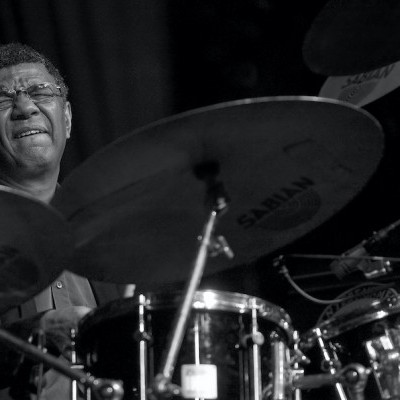
Jack DeJohnette boasted a musical resume that was as long as it was fearsome.
Oct 28, 2025 10:47 AM
Jack DeJohnette, a bold and resourceful drummer and NEA Jazz Master who forged a unique vocabulary on the kit over his…
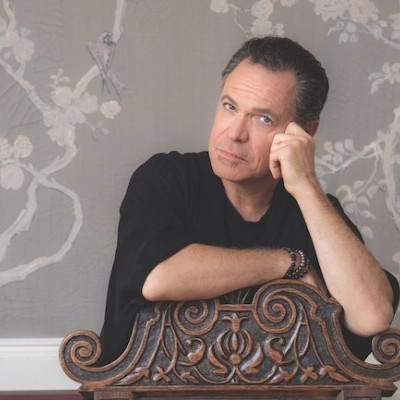
“Think of all the creative people I’m going to meet and a whole other way of thinking about music and a challenge of singing completely different material than I would have sung otherwise to my highest level in dedication to the moment,” Elling says about his Broadway run.
Sep 9, 2025 1:18 PM
Kurt Elling was back at home in Chicago, grabbing some family time in a late-June window between gigs. Sporting a smile…
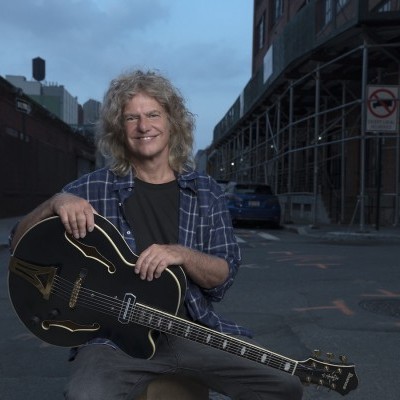
Pat Metheny will perform with his Side-Eye III ensemble at Big Ears 2026 in Knoxville, Tennessee, next March.
Sep 9, 2025 12:19 PM
Big Ears has announced the lineup for its 2026 festival, which will take place March 26–29 and include 250…
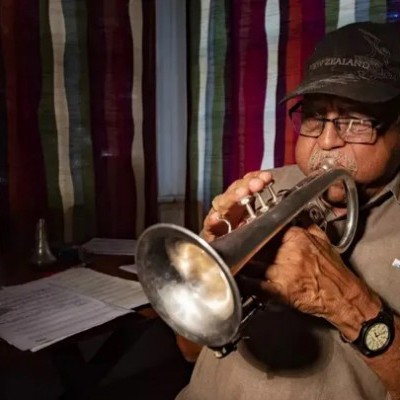
“[That’s] the thing of the beboppers,” Bradford said. “These guys were important for not only playing that wonderful music, but they knew a sort of social stance, you see?”
Sep 9, 2025 1:07 PM
It was a calm, balmy, near-perfect evening in Westwood, California, not far from UCLA, in the expansive courtyard at…
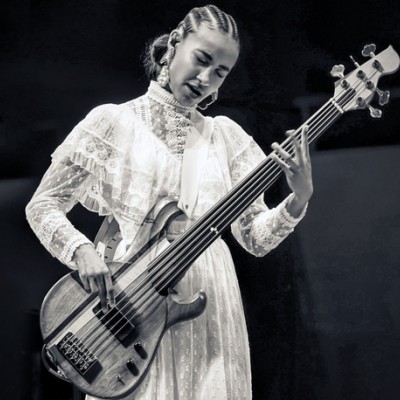
Esperanza Spalding closed an audacious Chicago Jazz Festival set with “Endangered Species.”
Sep 9, 2025 11:50 AM
The 45th Chicago Jazz Festival kicked off its headline events with two erudite individuals, Esperanza Spalding and…